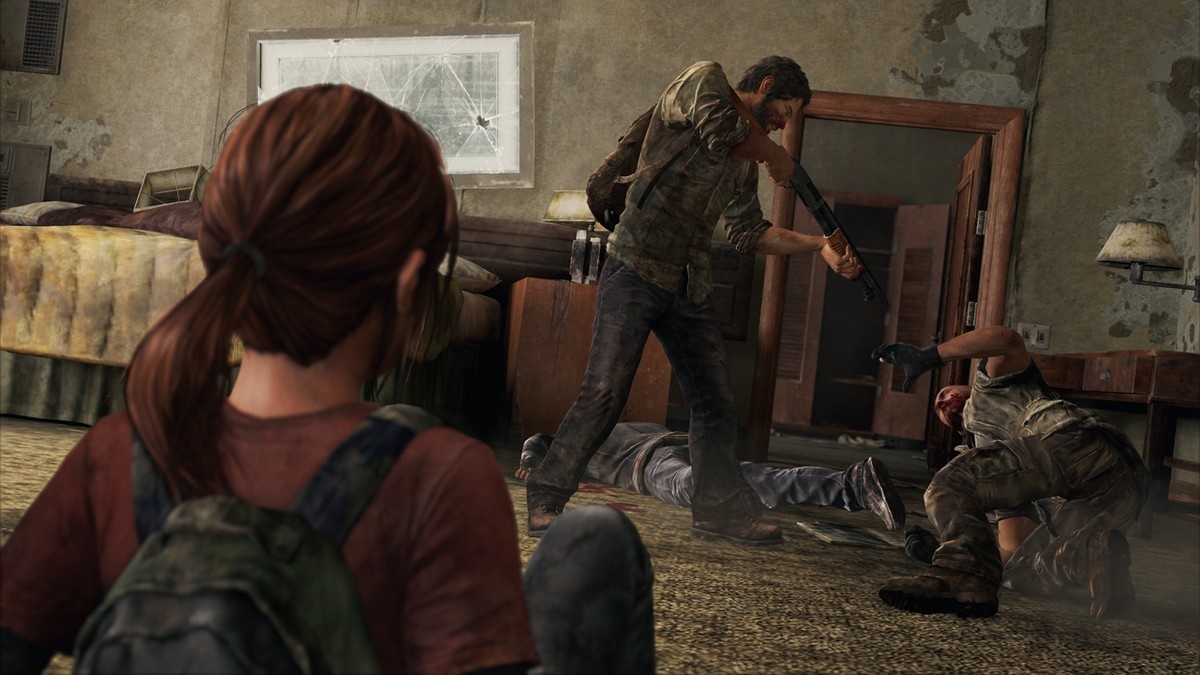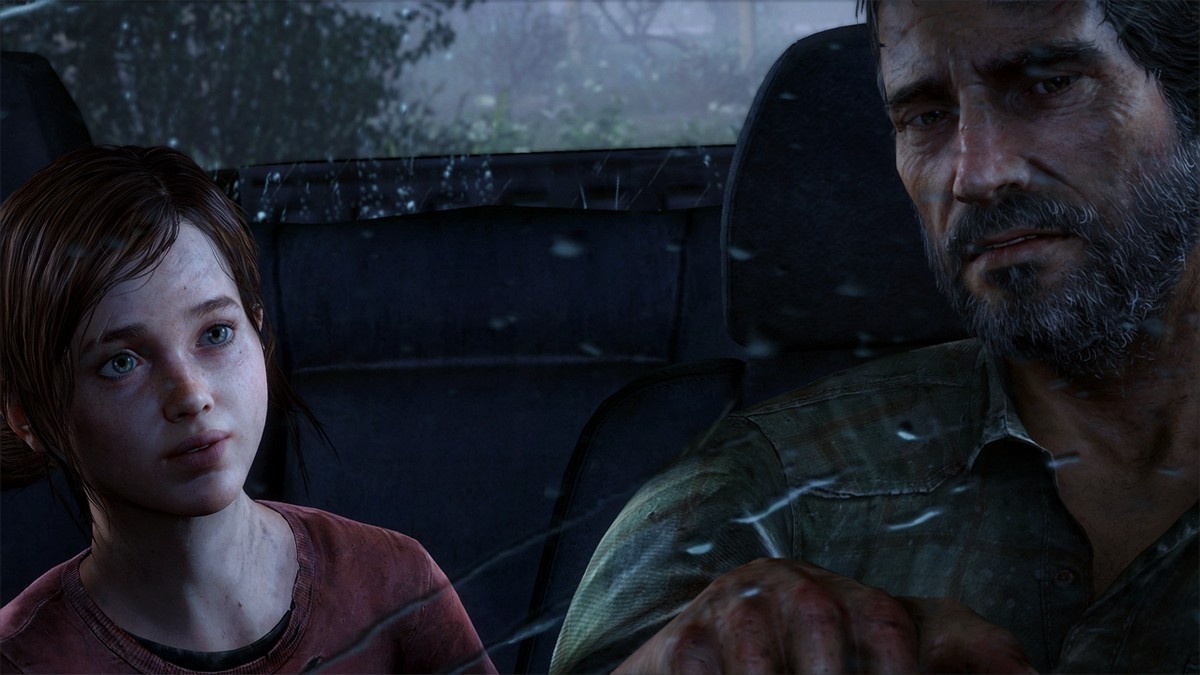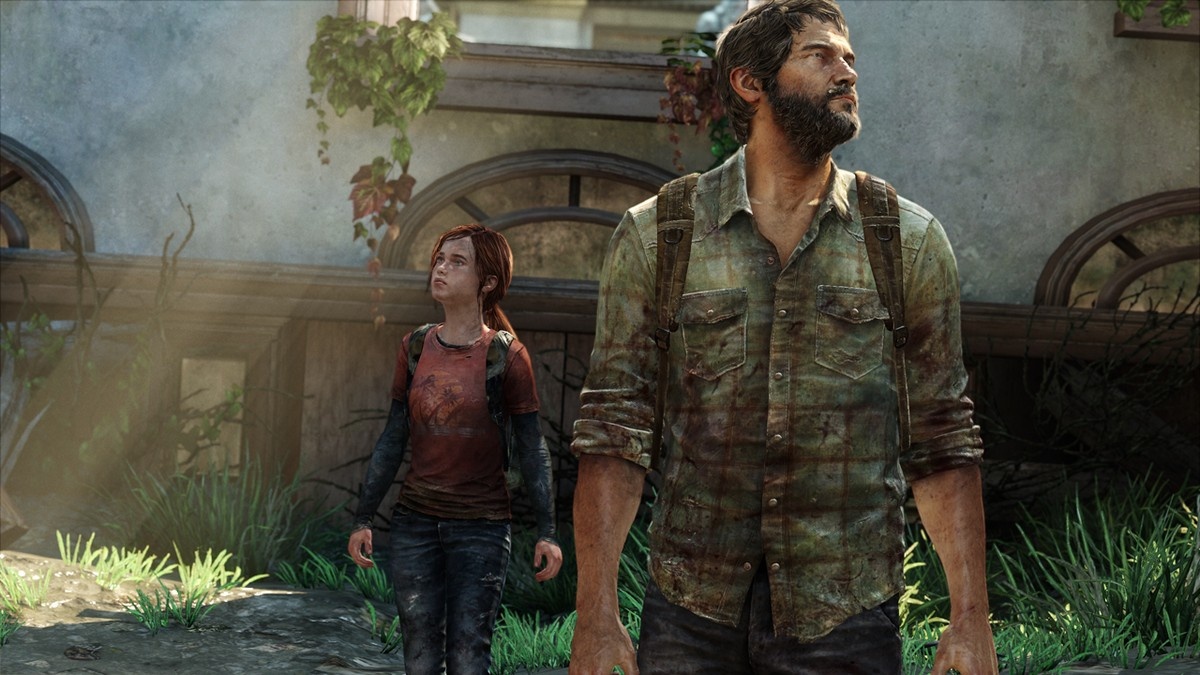The Last of Us and Grading on the Gender Curve
The Last of Us tells its story well, but that story is yet another take on the all-too-common tale of a violent, brooding male hero whose character development is fueled by the violent deaths of women.
SPOILER WARNING: This feature discusses major plot details of The Last of Us.
Since The Last of Us was released, there's been a fair amount of admiring discussion about the female characters who populate its world. To an extent, this is understandable. After all, unlike the women in so many games, these women aren't idealized or sexualized. They're haunted by the things they've been through. They're morally conflicted and sympathetic. However, simply presenting women as people is hardly something that should be considered incredibly praiseworthy. Rather, it's the bare minimum that we should expect from our narratives. To shower a game with praise for doing the minimum is to set the bar extremely low.

In his piece "Sexism sells? The Last of Us begs to differ" for Edge, Jason Killingsworth writes, "It's depressing that mainstream games have such an atrocious record with portrayals of women that simply writing your game's female characters in a humane fashion warrants congratulatory slaps on the back." I agree with this. However, I feel that Killingsworth then makes the mistake of proceeding to overpraise The Last of Us. The game hardly, as he puts it, "feeds the prevailing design manual for male videogame protagonists into an industrial wood chipper." Joel is yet another emotionally distant white male protagonist, one in a long, long line of such characters.
Simply presenting women as people is hardly something that should be considered incredibly praiseworthy. Rather, it's the bare minimum that we should expect from our narratives.
The Last of Us begins with a powerful sequence in which Joel's daughter Sarah dies violently. It's handled well, and it hits hard, but it also establishes The Last of Us as a story that operates within the same template as stories like God of War and Max Payne, stories about men whose lives are forever changed by the deaths of women and girls they care about and feel a responsibility to protect. Joel is the central character here, and as is so often the case in games, the life of a girl is spent in the narrative to fuel his development, setting in motion the character arc that gives the story of The Last of Us its shape.
Joel's sometimes-partner Tess is a fascinating character. She's experienced and tough; she feels things but has learned to bury her feelings and do what needs doing. I would have liked the chance to get to know her better. Ask yourself what this game might have been like if Tess had been the central character, and Joel had filled the role that Tess fills here. That would have brought the game a step closer to "subvert[ing] the traditional male power fantasy," as Killingsworth claims The Last of Us does. Instead, Tess becomes another casualty of the narrative, another woman who, like Sarah and so many video game women, dies to push the story forward.

This narrative structure that focuses on the character arc of a violent, brooding man often calls for women to die (or be otherwise lost) to move that arc along, and you cannot subvert this long-standing video game tradition while working within its confines and going along with its requirements. Far from subverting the typical game narrative about violent men, The Last of Us reinforces the notion that stories about men are more valuable and meaningful than stories about women, and that women are often important not so much for being fully-fledged people in their own right, but for what they--and often, what their deaths--mean to the men of the world.
As Chris Suellentrop writes in the New York Times review of the game, "Perhaps it is unfair to visit the sins of the medium upon a work as well made as this one," and indeed, it isn't the fault of this one game that this particular narrative pattern has become so overused. But it's also not as if this is the story The Last of Us had to tell; there's a tremendous diversity of potential stories that continue to go untold as games fall back on this particular template time and time again, so it also doesn't make sense to applaud it as a progressive portrayal of women in games.
We've let our notions of what's possible become limited by what's available. Instead, we need to evaluate games and how they handle gender based on their actual merits, not in relation to other games.
Of course, the most important relationship in The Last of Us is that between Joel and Ellie, and yes, Ellie is a great character. Over the course of the game's long journey, you find yourself invested in the connection that develops between these two people. But let's not kid ourselves about the nature of this relationship. Joel is the hero on a quest; like Frodo carrying the One Ring to Mount Doom, Joel must deliver Ellie to the Fireflies. Like the Ring to Frodo, Ellie sometimes gets Joel out of a jam. She also sometimes gets him into jams, and regularly slows him down--something you're reminded of each time you have to help her cross water.
Ellie, like all the women in the game, is important less in and of herself and more because of the impact that she has on Joel's life. It's because of the meaning she takes on for him that he feels compelled to make the decisions that give the ending its power. You do play as Ellie for a time, but in the end, this is still the story of how Joel is changed by his experiences. As Keith Stuart puts it in his Guardian piece "The Last of Us, Bioshock: Infinite and why all video game dystopias work the same way," "People who argue that The Last of Us is as much Ellie's story as Joel's might be correct in a pure narrative context, but in terms of identification and raw experience, we're with Joel all the way."

There's nothing wrong with stories about men, and how they are changed by the things they go through. But these stories about men--usually white men, usually violent men, often angry or emotionally distant men, whose lives are impacted by the violent deaths of women--are so prevalent in games today, and you can't tell such a story while simultaneously subverting the framework these stories follow, at least not if you adhere to that framework as closely as The Last of Us does. If we grade its handling of women on a curve relative to other games, The Last of Us is a success. It's somewhat better than most of what's out there. But we've let our notions of what's possible become limited by what's available. Instead, we need to evaluate games and how they handle gender based on their actual merits, not in relation to other games. We need to smash that curve with a sledgehammer.
Got a news tip or want to contact us directly? Email news@gamespot.com
Join the conversation